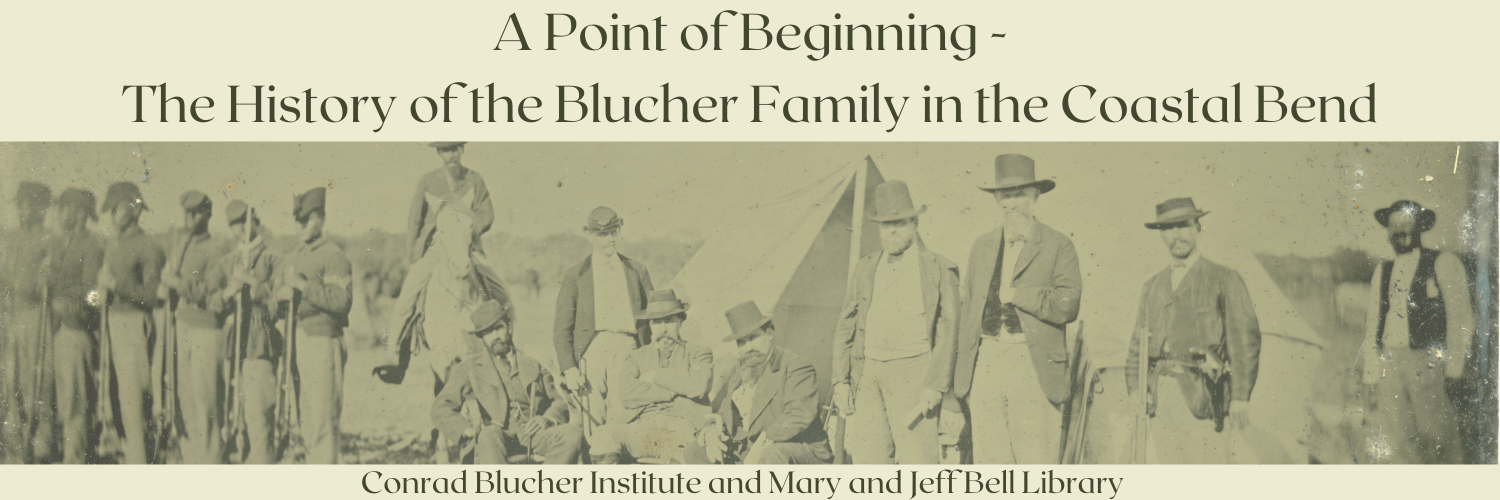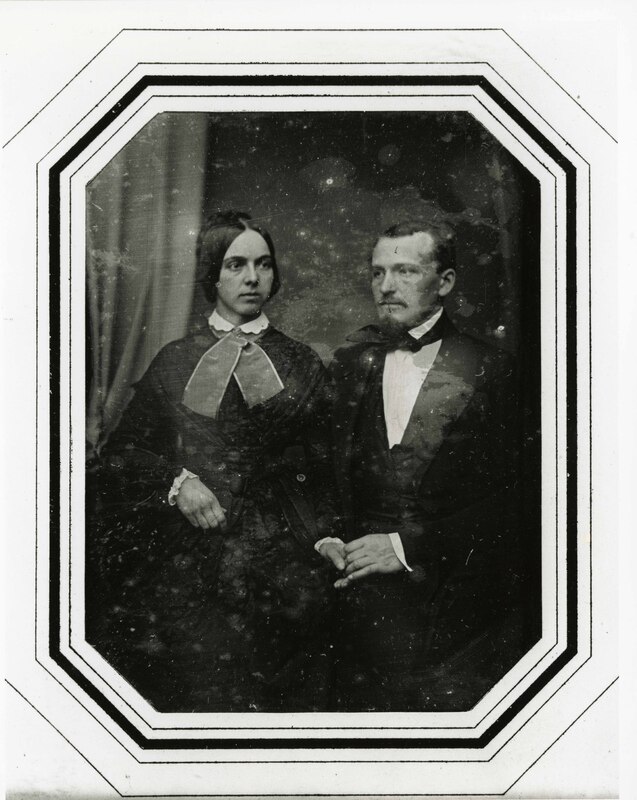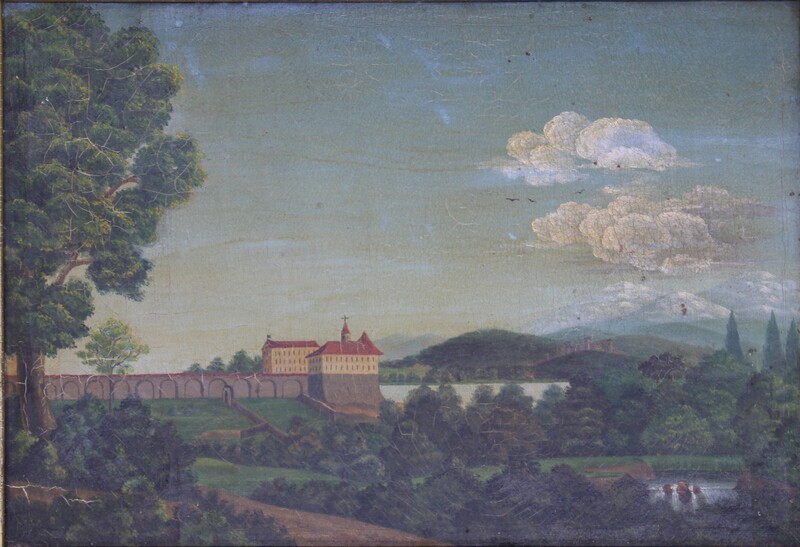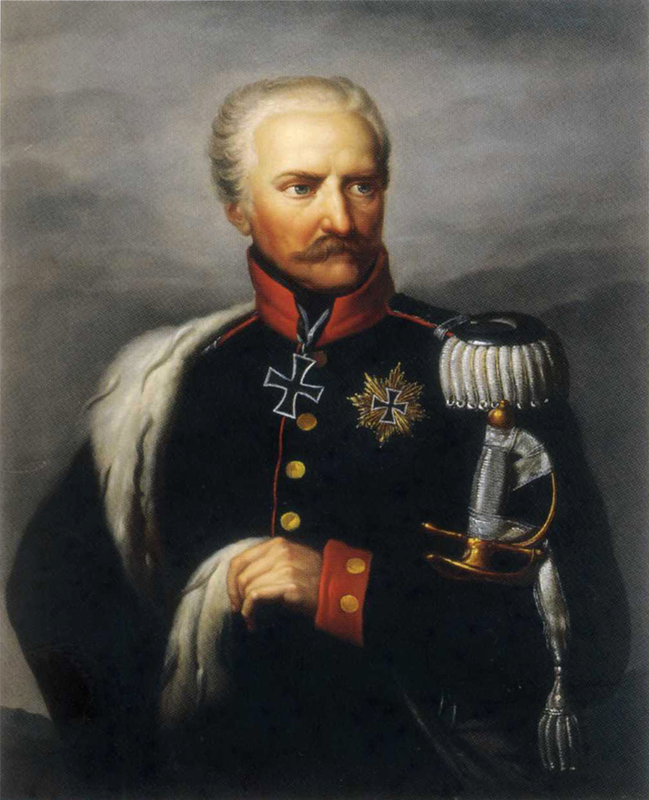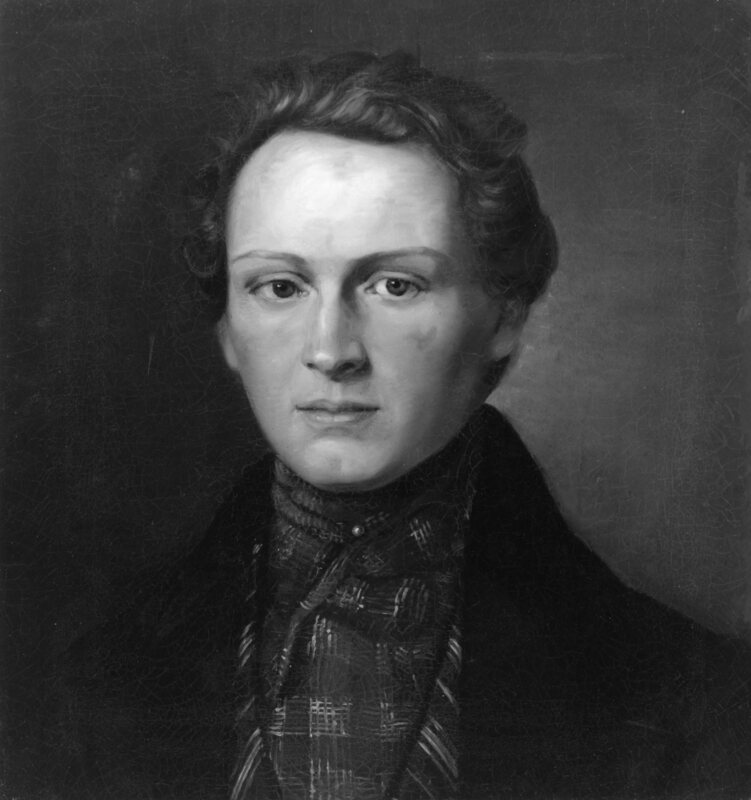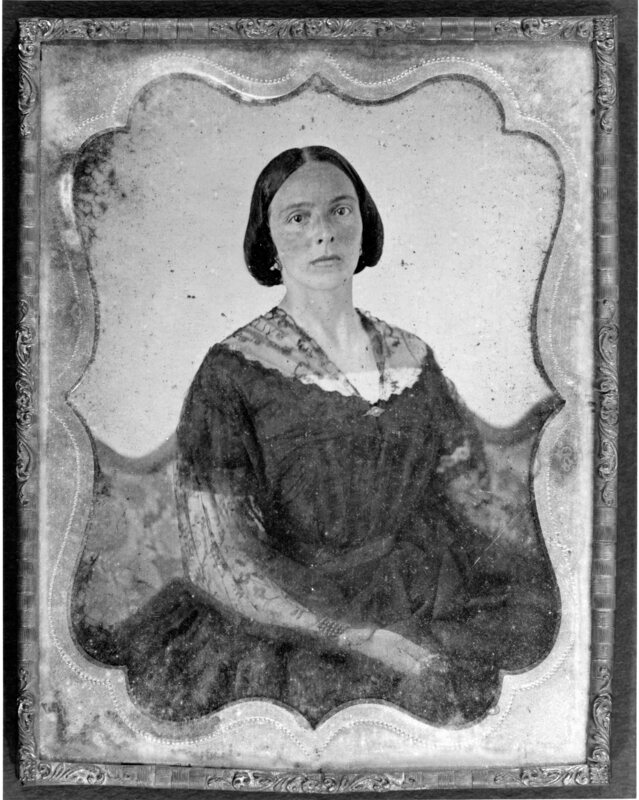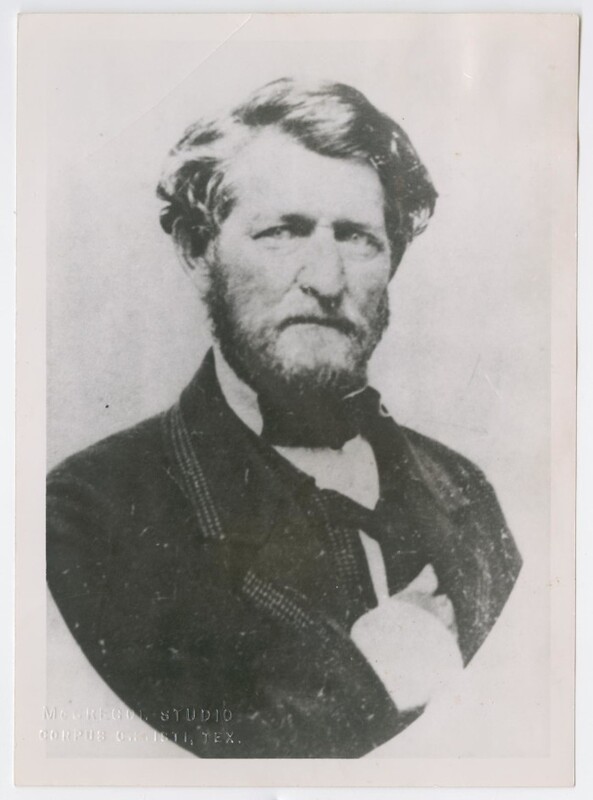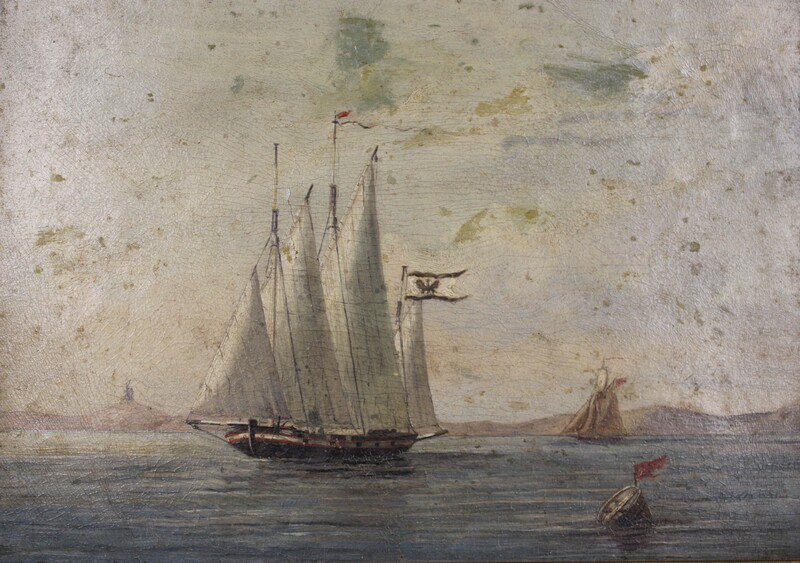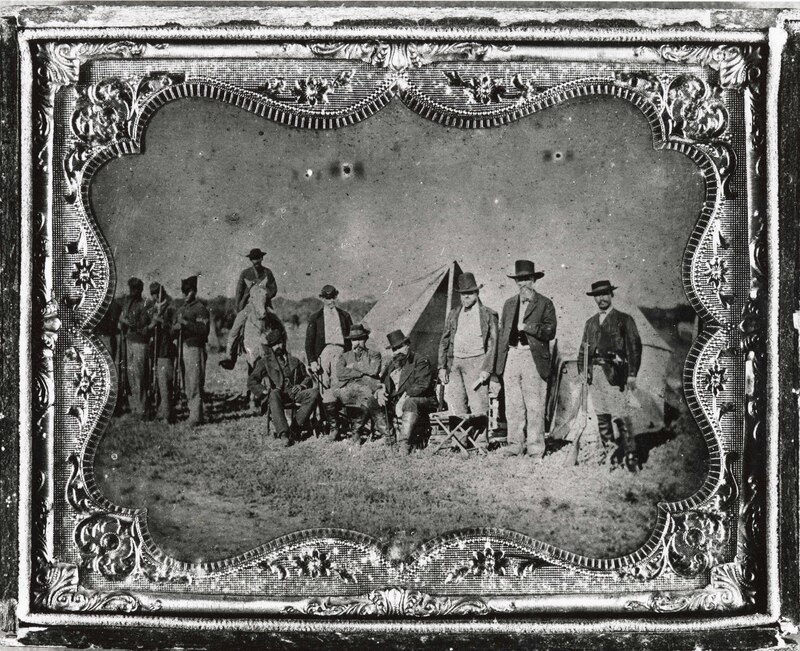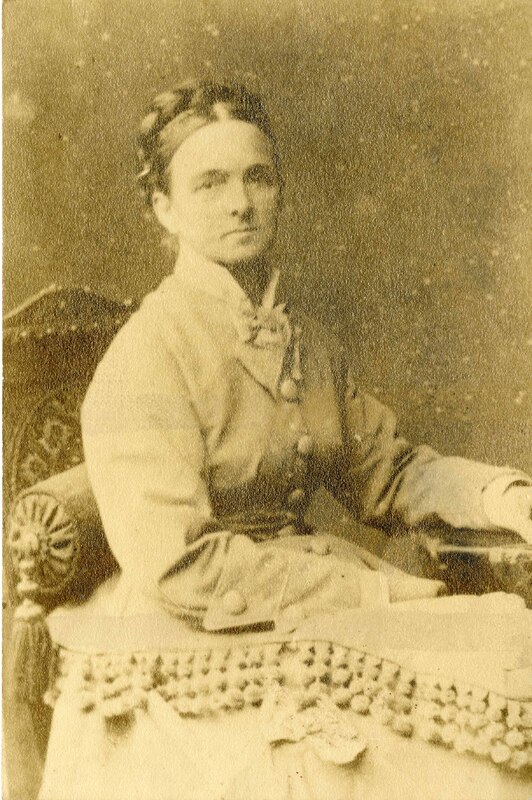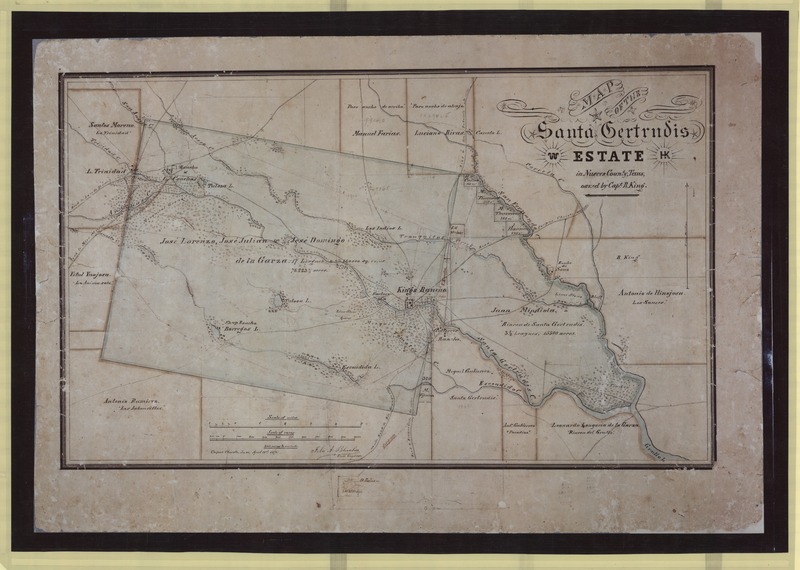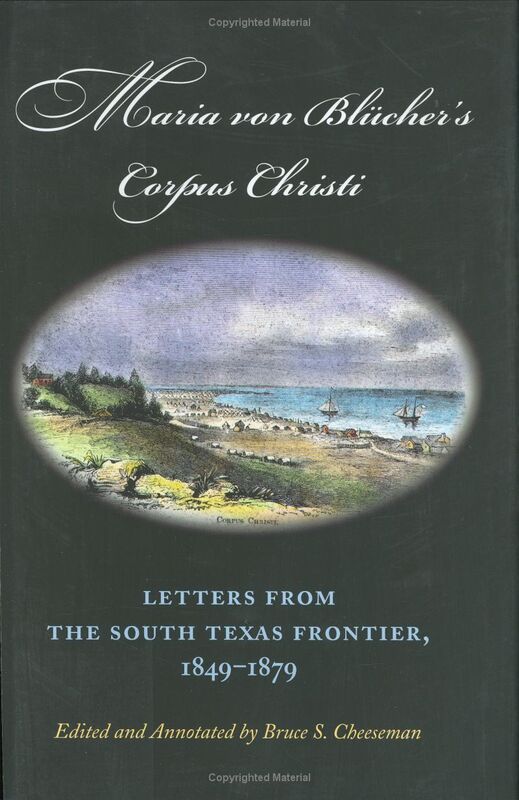Felix and Maria Blucher
Please click below for exhibit audio orated by Dr. Thomas H. Kreneck, Archivist and former Director of Special Collections and Archives at Texas A&M-Corpus Christi
Anton Felix Hans Hellmuth von Blucher (aka Felix Blucher) was born into Prussian nobility in 1819 on an estate owned by his family near Poggelow in present-day northern Germany.
Blucher claimed an illustrious lineage. He could count among his forbears a grand uncle named Gehard Lebrecht von Blucher, a General and hero at the Battle of Waterloo who was crucial in Napoleon’s defeat.
In 1838, Felix enrolled in the prestigious Friedrich-Wilhelm-Universitat in Berlin, where he earned distinction as an outstanding student in law, civil engineering, and languages. In 1845, he graduated with two advanced university degrees which qualified him as an attorney, surveyor, as well as a linguist; he would eventually command six languages and serve as a translator and interpreter.
At some point before he finished his studies, Felix met and became entranced with Maria Augusta Imme, the daughter of upper middle-class parents named Carl Friedrich and Marie Auguste Imme, owners of a Berlin brass foundry.
Born in 1827, Maria was attractive and charming. She was educated, too, having studied literature and music with private instructors. Family tradition held that she had at one-time studied piano and music under the German master Franz Liszt.
Felix’s politics derailed any marriage plans. He had become radicalized at the university. His anti-monarch tendencies brought him into disfavor with authorities so that in August 1845, he had to flee Prussia for the United States. Landing in New Orleans with little money, Felix did what he could to get by, tutoring German, serving as the accountant for his hotel keeper, and finally working in a local shipyard as a draftsman. In the spirit of Americanization, he even altered his name to Felix Anton Blucher
In 1846, Felix relocated to Texas to assist Prince Carl of Solms-Braunfels as a surveyor and linguist in building the latter’s settlement. Famously, Felix served as the interpreter of and signatory to an 1847 treaty drawn up between the Comanche Indians and the German settlers between the San Sabá and Llano Rivers.
Felix visited Corpus Christi where he met its founder, a frontier promoter named Henry Lawrence Kinney. They struck up a friendship.
Felix had also decided to return to Prussia, commit himself to marry Maria Imme, and make Corpus Christi their home. A man of adventure, energy, and purpose, Felix A. Blucher cast his lot with South Texas, and his prospective spouse would do the same.
In mid- February 1849, he made his way back to Berlin and managed to have a personal meeting with William I, the Prussian Prince, and to put himself in good standing with the royal authorities. In mid-March 1849, he and Maria wed and immediately began their passage to Texas.
Felix and Maria made the week-long trip by small sailing vessel across the Gulf from New Orleans to Corpus Christi, where they landed on July 11, 1849, loaded down with their clothes and an array of items, including Maria’s piano.
On July 11, 1849, two days after he and Maria landed, Felix set off to do survey work for H. L. Kinney. In 1852, Felix was appointed as the Nueces County District Engineer (Surveyor), a time when the county extended from the Nueces River to parts of the Rio Grande. In 1858, he received appointment as Cameron County District Surveyor. In 1860, he obtained the position of Live Oak County Surveyor. He often was out across the broadest reaches of South Texas.
During Felix’s long absences Maria relied on her own resourcefulness to make ends meet; she had a yard filled with chickens, cows, and a garden from which she sold eggs, milk, and vegetables. Maria became the quintessential resilient American frontier woman, shouldering the burdens of the home and farm by herself or with the aid of growing children and trusted local laborers.
During the 1870s, Maria became renown as a local instructor of music and piano. Numerous students thus benefitted from her early training and Prussian culture. Maria also supplemented the family income by serving as a teacher of various languages.
Always, she remained mindful of having her own children educated, a duty which continued the literate Blucher tradition.
Felix’s surveying assignments during the early 1870s included the first attempt to build a narrow-gauge railroad from Corpus Christi to Laredo, an enterprise trying to link the emerging Texas port town with the interior of Mexico. By then he was employing his two oldest sons in his work. Felix’s endeavors also carried him to Laredo, Zapata, Brownsville, and other points in the lower Rio Grande Valley. His surveying proved to be economically profitable.
Always he made more notes, created more field books, and drew masterful maps, in the process increasing the written record of his time on the South Texas terrain.
It was 1879 while on a surveying job for Richard King that Felix Blucher died unexpectedly in Cameron County of a lung condition.
Maria remained in her home with her offspring living nearby. As biographer Bruce Cheeseman notes, she “continued to teach music, enjoyed her garden and pets, and delighted as she always had in the beauty and bounty of the bay and chaparral.” She died in 1893.
